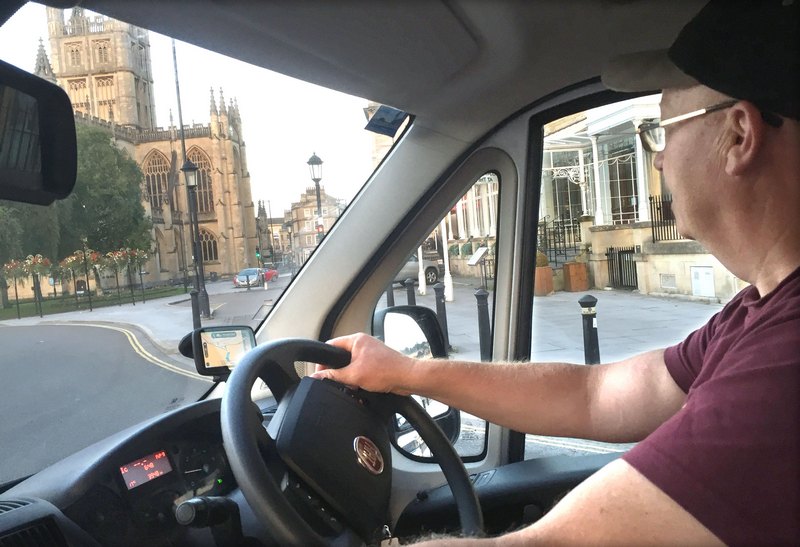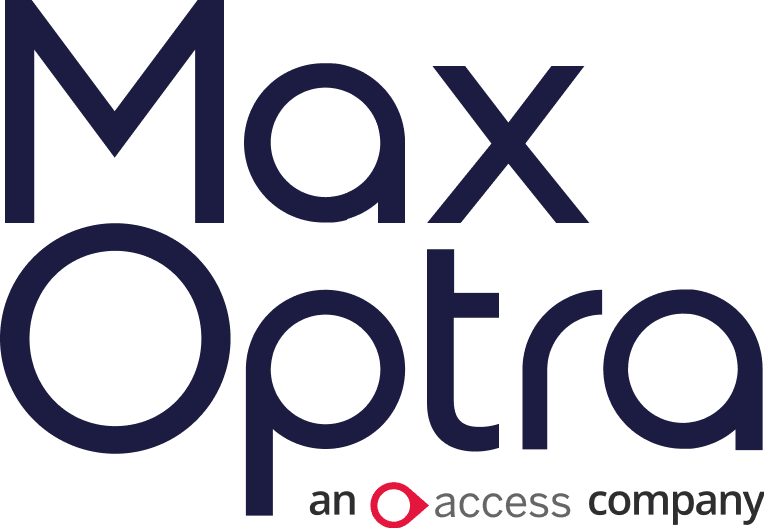I beat my SatNav AGAIN

My route to epiphany – why we need to think “man plus machine” not “man vs machine” to ensure future competitiveness.
By Stuart Brunger, Business Development Director, Maxoptra
Driving the motorhome back from Devon at the weekend, my superior local knowledge of Bath meant that I reduced my journey mileage and duration over that predicted by my SatNav. This is happening – time and time again! And I’m not the only one who can do this.
Sadly, I’ve encountered many who passionately argue that this shortcoming of the SatNav is clear proof that long in the tooth experience and knowledge trumps technology, and that’s good enough reason to never use such technology ever again. (I’ve found that this argument is most often expounded by traffic delayed apologetic domestic appliance service engineers who claim to know the area so well they don’t need a SatNav.)
Each to his own, I guess.
I take a more holistic view after many years of driving. Maybe it’s a more self-centred “what’s in it for me?” approach – an extension of business behaviour I’m proud of: “How do I get the most done with minimal effort so I can do something more interesting?”
Firstly – on the journey in question – I was only in Bath because my SatNav sent me in that direction to avoid a closed motorway. Without a SatNav, I’d have spent a couple of extra hours stuck in traffic. With all my experience, I still can’t foresee and avoid unpredictable traffic jams as quickly and effectively as a SatNav. So, actually, my experience/local knowledge improved a journey that the SatNav had already improved in a way I could never have done. Paradoxically, it’s only through the KPIs provided by the SatNav (remaining journey time, ETA, etc.) that I have any evidence that I improved what it had calculated.
Then there are other benefits.
Not having to spend time figuring out where exactly my destination is – SatNav does it quicker. Remember printing off street maps the night before, or sorting through a boot full of A-Z guides?
Not having to drive to a meeting in a state of anxiety as to whether I’ll be on time or not – SatNav constantly reassures me of my ETA and so I arrive less stressed.
In fact, I’m a bit of a fan. Given the choice of losing my dashboard or my aftermarket windscreen SatNav, I’d lose the dashboard.
But there are some interesting lessons here. Firstly, the best solution is technology and experience working in partnership; and secondly – of key importance – is how the two communicate and collaborate. SatNavs, I think, are quite good at this. Cars I’ve driven with active cruise control – not so good. “Have you seen that truck or do you want me to do the braking this time?” (I’m confident this will improve with time.) And let’s leave the ergonomics of a touchscreen car radio for another day – you have to look at it to control it … arrgh!
This is precisely the point that Kevin Kelly makes really well in The Inevitable: Understanding the 12 Technological Forces That Will Shape Our Future. We all know how the Artificial Intelligence Supercomputer Deep Blue beat Kasparov at the game of chess, but what is not so well reported is that Kasparov then went on to pioneer man-plus-machine matches, where artificial intelligence augments rather than competes with man. For too long our frame of reference has been “man vs machine – what’s best?” when, in fact, what’s best and what we’ll see more and more is “man plus machine”.
It is the “man vs machine” mind-set that prevents us making real progress.
Of course, with Maxoptra, we have the SatNav scenario many times over. Using similar databases used and created by SatNavs, we can very quickly use our technology to calculate optimised routes, crunching numbers and applying complex algorithms which the human mind simply cannot manage. Nevertheless, we are mindful that an experienced planner can then further improve this based on experience, local knowledge and industry specifics. For this reason, from the very start the design brief for Maxoptra was to enable the user to quickly and easily understand and fine tune the heavy lifting that Maxoptra has already taken care of. We continue to improve this collaboration between man and machine with our recently introduced speed zones.
Remember, it’s not “man vs machine”. It’s “man plus machine”.
About the author:
Stuart has over 20 years’ experience advising fleets on how to maximise productivity, reduce operating costs, minimise risk and improve customer service across a wide spectrum of industries, including Emergency Services, Security, Logistics, Utilities, Government and Service Management. Stuart has been responsible for many innovative applications of technology, with projects ranging from the deployment of a 4,500 vehicle telematics solution for the emergency services during the Greek Olympics to assisting fleets to maximise asset productivity. His hands-on operational experience of building a business division from scratch and running a nationwide service and customer support organisation, means that Stuart possesses a real world appreciation of the challenges that businesses face when implementing new technologies as markets change.
Stuart Brunger
Business Development Director Maxoptra, Magenta Technology
stuart.brunger@magenta-technology.com
Tel: 0207494 7510
www.maxoptra.com
Maxoptra System
© MaxOptra, 2023. Privacy Policy and Cookies
